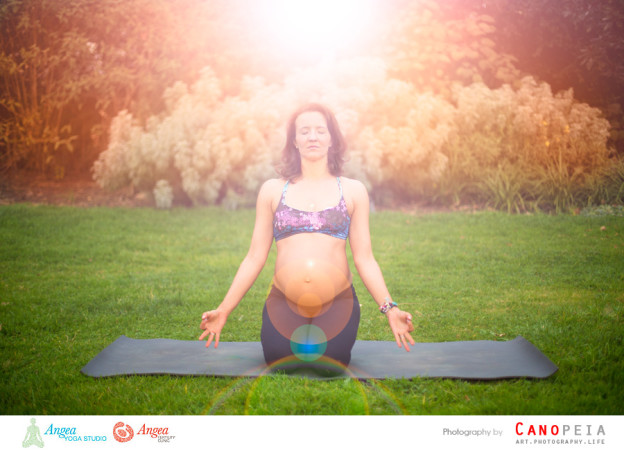When I was 15 years old my Mum took me to a natural fertility specialist to teach me about my menstrual cycle. I had already tried several different contraceptive pills, but they just didn’t work well for me. I suffered many uncomfortable side effects, just as my mum had done. She didn’t want me falling pregnant at a young age, so her idea was to educate me about my menstrual cycle. I was taught about my fertile days and when to avoid having sex, which, for a 15-year-old girl, was the most important part! The last thing I wanted to happen was to fall pregnant in my teenage years. For the past 20 years I have been tracking my cycle. I know my body and my cycle inside out. Now I have the best job in the world, educating women about their fertility and menstrual cycles. Who would have thought that experience all those years ago would lead me to where I am now.
When I was in my early 20s, the thought of having a baby wasn’t something I had considered. While I had always loved children, I struggled enough to look after myself. As I approached my 30s and now working with women and their fertility, I knew just how important lifestyle and health choices are when it comes to making a baby. Having now been on this journey myself, I sometimes wish I knew in my 20s what I do now. The truth is, what we do to our bodies can affect us later in life. The older we become, the more our lifestyle choices influence our health and wellbeing.
When we talk about preconception care we need to think about what you can do to prepare your body for having a baby. For those who are not thinking about having a baby yet, preconception care can be a mindful and conscious choice of caring for your body and health in a way that will benefit you in the future. In the clinic I like to use the analogy of creating healthy soil that will be ready to grow a seed and for that seed to then blossom.
So, what are some of things you can do to get your body baby ready? From a holistic perspective, I recommend therapies that can enhance your health and fertility. What I have found to be successful is healthy living integrated with mind-body medicine. I tell my patients on their first consultation, “You want to treat your body like it’s already pregnant”. Most people are willing to make healthy lifestyle choices if it will help with conception and having a healthy baby.
Here are some proactive steps you can take to help your chances for success.
NUTRITION
If you take a closer look at your nutrition, you may be surprised at some of the choices you are making. Now is the time to be more conscious about the foods you consume. It’s important to avoid foods high in preservatives, processed foods, refined sugars, caffeine and alcohol. Clinical research suggests that alcohol intake negatively impacts IVF success and is associated with a longer time to conception and an increased miscarriage risk. For men, chronic alcohol consumption negatively impacts sperm quality and can cause an acute fall in sperm count.
Studies on caffeine and fertility are inconclusive, however, caffeine is known to decrease blood flow to the uterus. Caffeine can also increase anxiety and stress levels. Too much caffeine may also increase the risk of clotting and miscarriage, so it’s best to avoid coffee if you are having implantation problems or have a history of recurrent miscarriages. My advice would be that it’s best to eliminate all caffeine-containing food and drinks for at least three months before trying to conceive.
Key nutrients and vitamins
The best way to nourish your body is to eat well. However, there are specific nutrients that can help improve fertility. Studies have shown that certain vitamins can improve fertility in both men and women and are essential to maintain healthy sperm production and ovulation.
Royal Jelly: Royal Jelly is rich in amino acids, lipids, sugars, vitamins and, most importantly, proteins. It has been shown to improve egg quality and balance hormones. Royal Jelly should only be taken during natural conception.
CoQ10: is contained in every cell in the human body and one of its many functions is to promote good blood circulation. It may also improve blood flow, enrich the endometrium, improve fertilisation rates and improve egg and sperm quality and production.
B Vitamins: B vitamins help reduce our stress levels and are important for embryonic development. Folic Acid is also a B Vitamin and is important in fetal development as it dramatically lowers the risk of neural tube defects (spina bifida).
Vitamin E: is an important antioxidant for reproduction and fertility. Research has shown it can improve the overall health of men’s sperm and in women can increase overall egg health. It has also been shown to increase the endometrial lining, which creates a receptive environment for implantation. The thickness of lining needs to be between 7-13mm.
Magnesium: improves fertilisation rates. Supports progesterone production and increases the blood supply to the uterus.
Selenium: helps protect against birth defects and miscarriage and is also important for egg production.
Zinc: is an important trace mineral for both men and women. In women, itpromotes cell formation and is vital for hormone production and implantation. It plays a vital role in cell division. For males, zinc is necessary for making the outer membrane and tail of the sperm and for sperm to mature properly.
DHA: Helps form body tissue and is essential for brain development in a fetus.
Essential fatty Acids (EFA): There are three types of essential fatty acids. Omega 3, Omega 6 & Omega 9. For fertility we want to choose Omega 3 and Omega 6 fatty acids as they are essential to the body. Choose a supplement with a balance of Omega 3 & Omega 6. Omega 3 is crucial for healthy regulation of hormones throughout the body. It also improves blood flow to the reproductive organs. Omega 6 assists fertility by improving reproductive cell division. This is the most important supplement after the prenatal multivitamin. Ideally, women should take EFA’s for at least three months before they conceive.
LIFESTYLE
The truth is, the older you get the more your lifestyle choices matter. What you do now can impact your fertility later in life. If you want healthy eggs and active sperm, you also need to be healthy and active. Fitness and exercise can help control your body weight, regulate your hormones, increase your self-esteem and help manage your stress levels – all of which influence your reproductive health.
YOGA
Some of you may think of yoga as just stretching and postures. However, it is so much more than a physical practice. It is a way of living that brings about peace, calm and awareness. It has a wonderful way of working its magic not only on the mat, but also in your daily life.
Yoga, meditation and acupuncture all release what we call ‘the happy hormones’. I am a self-confessed yogi and yoga teacher. Yoga is a powerful life tool and is another must try for those who are trying to conceive. The word yoga comes from the Sanskrit word ‘yuj’, which means to unite. It is about the connection of mind, body, breath and movement. Yoga is a combination of asana (postures) and breathing techniques that help you get into a state of relaxation and mediation. Yoga asana increases strength, improves flexibility and helps balance our hormones. Modern research has shown that yoga reduces the stress hormone cortisol. In yoga physiology it is believed that specific yoga postures can increase the blood flow and life force, ‘prana’ or ‘qi’, to the reproductive organs. Yoga can be used as an integral part of the preconception program.
REDUCE STRESS
Your thoughts and emotions can have a powerful impact on your health and wellbeing and they play an important role in fertility. High levels of stress have been shown to alter the function of the hypothalamus, which controls ovulation; contribute to irregular menstrual periods; produce high levels of cortisol; decrease reproductive hormones like oestrogen and progesterone; and divert blood flow away from the ovaries and uterine lining, thereby affecting egg quality and successful implantation.
Self-observation is key to changing thought patterns, and both meditation and yoga use mind-body techniques that create a relaxation response and a reduction in stress. Yes, sex is also a fantastic stress reducer – as long as it isn’t overshadowed by the pressure to ‘make a baby’!
ACUPUNCTURE
Acupuncture works on regulating your endocrine system and the energetics of your body. With natural conception acupuncture can:
Regulate the menses: it works by regulating your hormones and menstrual cycle. Controlling irregular menstruation can help couples to better predict the time of ovulation.
Increase the uterine lining: it increases the blood flow to the uterus, resulting in a thicker, healthier uterine lining. I have seen dramatic improvements with acupuncture and herbal therapy in treating thin endometrial lining.
Improve sperm: studies have shown that acupuncture can increase sperm count and sperm motility.
Prevent miscarriage: particular herbal formulas and acupuncture treatments are known to help secure a growing embryo and prevent a miscarriage.
For the most part, the things that keep your body healthy also support your fertility. Everyone who wants to conceive will benefit by getting themselves in good physical and mental shape before trying for a baby. It’s important to live an active lifestyle incorporating good nutrition, exercise, yoga and adequate sleep. To release our mind of stress and negativity, practise meditation, mindfulness and self care. As long as you are making healthy choices for your general health, you will be doing the right thing for your fertility.
Angea offers preconception programs that support mindfulness, eating plans, yoga, acupuncture and herbs. Angea has a three-month ‘Road to Success Pre-Conception Program’ that supports you on your journey to a healthy mind, body and soul.
REFERENCES
Chen A et al, Jnl Acup Tuina Sci 2011 Vol 9, Number 4, 219-222, Effect ofacupuncture-moxibustion therapy on sperm quality in infertility patients with sperm abnormality Journal of Acupuncture and Tuina Science
Domar, A, Zuttermeister, P, Friedman, R. (1993) The psychological impact of infertility: a comparison with patients with other medical conditions. J. Psychosomatic Obstetric Gynaecology. 14: 45-52.
Dalton-Brewer N et al, Hum Fert 2010 Vol 12 No 4 212 – 255. The Use of Acupuncture before and after embryo transfer. Human Fertility (abstracts from UK Fertility Societies Conference 2009)
Jancin B, 2010, Elsevier News. Pilot study: acupuncture may improve results of IVF. Elsevier Global Medical News
Liu F, Luo SP, Chin J Integr Med. 2009 Oct;15(5):353-8. Effect of Chinese herbal treatment on Th1- and Th2-type cytokines, progesterone and beta-human chorionic gonadotropin in early pregnant women of threatened abortion. Chinese Journal of Integrated Medicine

